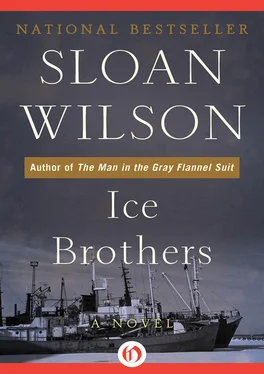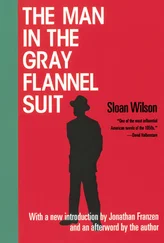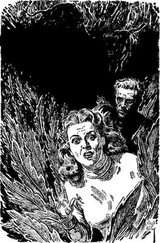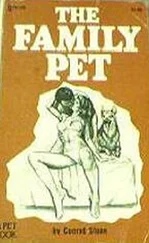“I guess I like the practice but can’t buy the theory. Not as a way to live forever.”
“You want me to promise to stay away from poor old Swan after you’ve left?”
“I hope you will.”
“And when Peo takes me out to teach me how to hunt seals, you want to ask him to build separate igloos for us?”
“You’re laughing at me.”
“You want me to keep myself pure for you after you’ve gone, even if I know damn well you’ll go back to your wife? Even if the war lasts years and years?”
“Well, it’s a nice thought—”
“No, it’s an ugly pretense.”
“What do you want me to say?”
“I want you to love me as I am. Isn’t that what everyone wants?”
“I guess.”
“I want to love life without having to pretty it up. Prettying it up ruins it. Can’t you love yourself without prettying yourself up?”
“What do you mean?”
“You’re not discovering the great love of your life that will make you leave your wife. You’re just a lonely sailor in Greenland.”
“Can’t romantic hopes be good too—?”
“As good as what we’ve got? In the long run, they’ll just make you hate to think of me. I’d like you to remember me as an honest woman.”
“ That , I will.”
“So don’t ruin the laughing together with serious talk. You taught me how to hate honestly.”
“Maybe I don’t even feel so great about that.”
“I know. We’re supposed to fight wars without hating and to make laughing together respectable we have to tell a great many lies. Don’t you get sick of it?”
“Sometimes.”
He still didn’t know how to tell her that her realistic talk left him feeling curiously empty … “Are you always going to hang onto the Eskimo idea of love?” he asked. “Will it always just be laughing together, nothing more?”
“How many couples do you know in America who have more than that? How many have less?”
“I never made a count.”
“Don’t count and let’s have no more talking. If I’ve made it hard for you to laugh, I’m sorry.”
She began to tickle him and it wasn’t long before he began to laugh. He was surprised when she quickly led him to finish the love-making and began to get dressed.
“I think I could laugh a little more with you,” he said.
“We have work to do. Don’t you want me to get the Eskimos together for you in the church?”
“How long will that take?”
“I want to visit each hut and explain a little what’s happening. Give me about an hour.”
Before leaving she fixed him a breakfast of small sea-bird eggs, smoked herring and hot chocolate, Swanson’s usual, he guessed. While waiting for her he sat in Swanson’s huge overstuffed armchair, glanced at his books, which were mostly theological discussions and anthropological studies of Eskimos, and tried to avoid picturing the old man now, huddled on the ground near the stove in one of those overcrowded sod huts. Probably the Germans, despite the atrocities they had worked on others, would be good to him, and he would be more sure than ever that all men are brothers, including murdering Germans.
When the meeting started, there was just enough daylight in the church to make the stained-glassed window, a primitive picture of Christ on the cross, glow. The stove had just been lit, and as the Eskimos filed in, their breath frosted in front of their mouths like speech balloons, and he wished they could be filled with English words. In this frigid air, the Eskimos, who could never wash their bodies in the eternal chill of their sod huts, did not smell. It was only the temperature created by white men which made them offensive, he realized. They brought many children with them, and as they crowded the benches, they looked like a furry PTA meeting. The round copper-colored faces of the full-blooded Eskimos and all the gradations of interbreeding with the whites were impassive, waiting for the next surprises from the new white men. They talked together hardly at all. The women cuddled their fur-clad babies and the men caressed the toddlers too. Paul had read that in Eskimo communities no one knew or cared who the father of a child was. The children were the sons and daughters of the whole group and were loved by all as long as there was enough food to feed them.
Paul stood next to Brit beside the lectern. She said, “I have explained that you want to talk to them about the Germans. Just speak slowly and give me time to translate each sentence.”
He tried to keep his speech as simple as possible. “The Germans are a people who look just like the Danes and the Americans, but their hearts and their minds are very different,” he began. “In Europe they have killed millions of people—”
“They don’t have a word for millions,” Brit said to him. “I’ll say, ‘The dead they left in Europe are as many as the snowflakes here.’”
The Eskimos looked incredulous.
“They have sunk an American ship just like mine,” Paul continued. “They shot all the survivors in an open boat. They have killed two of my own crew, and their bodies now wait for burial in the shadow of this church. More than a hundred Germans—”
“They don’t have a word for ‘hundred,’” Brit said, interrupting her translation. “I’ll say ‘more than ten times our fingers and toes,’ but try not to use numbers.”
“Many of them, more people than we have here, have settled at Supportup-Kangerdula,” he continued. “They will kill us if we do not kill them.”
The Eskimos again looked incredulous.
“I need your help,” he said. “I have many guns, large and small, but I need your help to get them near the Germans. I need your dog sleds and your knowledge of how to hunt in Greenland.”
While Brit translated their faces were impassive.
“I will pay for your help,” he continued. “I will give you guns and ammunition which you can keep when I go. I will give you canned meat, sugar, coffee and tea.”
Now they all smiled and he knew he had them. Somehow he felt as disappointed and guilty as he did relieved. In one respect he had lied to them — he did not think the Germans actually would kill them if they minded their own business. But without their help, he was sure that many more of his own men would die and he would rather let a few of these strangers die instead. That was the truth of it, and he had to live with it.
When Paul had finished, Brit gave a long, impassioned speech in their language. He heard her use of the word “Germans” frequently and guessed that with the fervor of a new convert, she was teaching them to hate. This seemed to be an ironic sacrilege in a church, but he reminded himself that even a prayer for victory cannot really be without hate.
“I told them what happened to my husband and son,” she said when she had finished. “And I told them that Swan was out on the island trying to teach the Germans the error of their ways. They would expect that of him. Wasn’t that a good idea?”
“Fine.”
The Eskimos now put their hands up like good pupils and asked questions. They wanted to know exactly what they should do. Paul said he would soon send men in to give them guns and explain their use. They would make plans together. Through Brit he thanked them, praised them for their understanding. Then he hurriedly left.
“What time do you have to go back to your ship?” she asked.
He glanced at his watch. “A little more than an hour.”
“How about some lunch? I can fix you a sandwich on the boat.”
She rummaged in the bottom of a locker in her little galley and came up with a small can of Danish ham which he guessed she had been saving for a special occasion. He sat down on a bunk and watched while she sliced both the ham and a homemade loaf of bread very thin.
Читать дальше












